The Bible talks about wealth and its management in many places. It features several wealthy people who played significant roles in the history of the faith. While most of Jesus’ followers were not wealthy, a few notable ones, like Joseph of Arimathea, were.
The stories of wealthy people in the Bible provide valuable lessons about the dangers and disciplines of money.
For instance, the story of the rich young ruler in Mark 10:17-31 shows how wealth can hinder one’s relationship with God. On the other hand, the story of Job demonstrates how wealth can be a blessing when used for the glory of God.
The Bible also teaches that wealth is not inherently evil, but it is the love of money that is the root of all kinds of evil (1 Timothy 6:10). Therefore, Christians are called to manage their wealth wisely and use it to bless others and further God’s kingdom.
In this article, we will explore the stories of wealthy people in the Bible and draw insights from their examples.
Abraham: The Father of Many Nations

Abraham is one of the most well-known and respected figures in the Bible. He is considered the father of many nations and is revered by Jews, Christians, and Muslims alike.
Abraham’s story begins in Genesis, where he is first introduced as Abram. He lived in Ur of the Chaldeans, but God called him to leave his homeland and go to a new land that God would show him.
Abram obeyed God, and he and his wife Sarah (then known as Sarai) set out on a journey that would change their lives forever.
Despite facing many challenges and obstacles, including a famine that forced him to leave the land God promised, Abram remained faithful to God. He continued to trust God’s promises, even when they seemed impossible to fulfill.
One of the most significant moments in Abram’s life came when God promised him that he would be the father of many nations. Abram and Sarai were both old and had no children at the time. But Abram believed in God’s promise and continued to trust in Him.
God changed Abram’s name to Abraham, which means “father of many nations,” and promised to make him the father of a great nation. Abraham’s faith was rewarded when Sarah gave birth to a son, Isaac, in their old age.
Abraham’s wealth was also a sign of God’s blessings. He had many flocks, herds, silver, and gold and was considered very rich. Despite his wealth, Abraham remained humble and faithful to God, and his story continues to inspire people today.
David: The Wealthy King
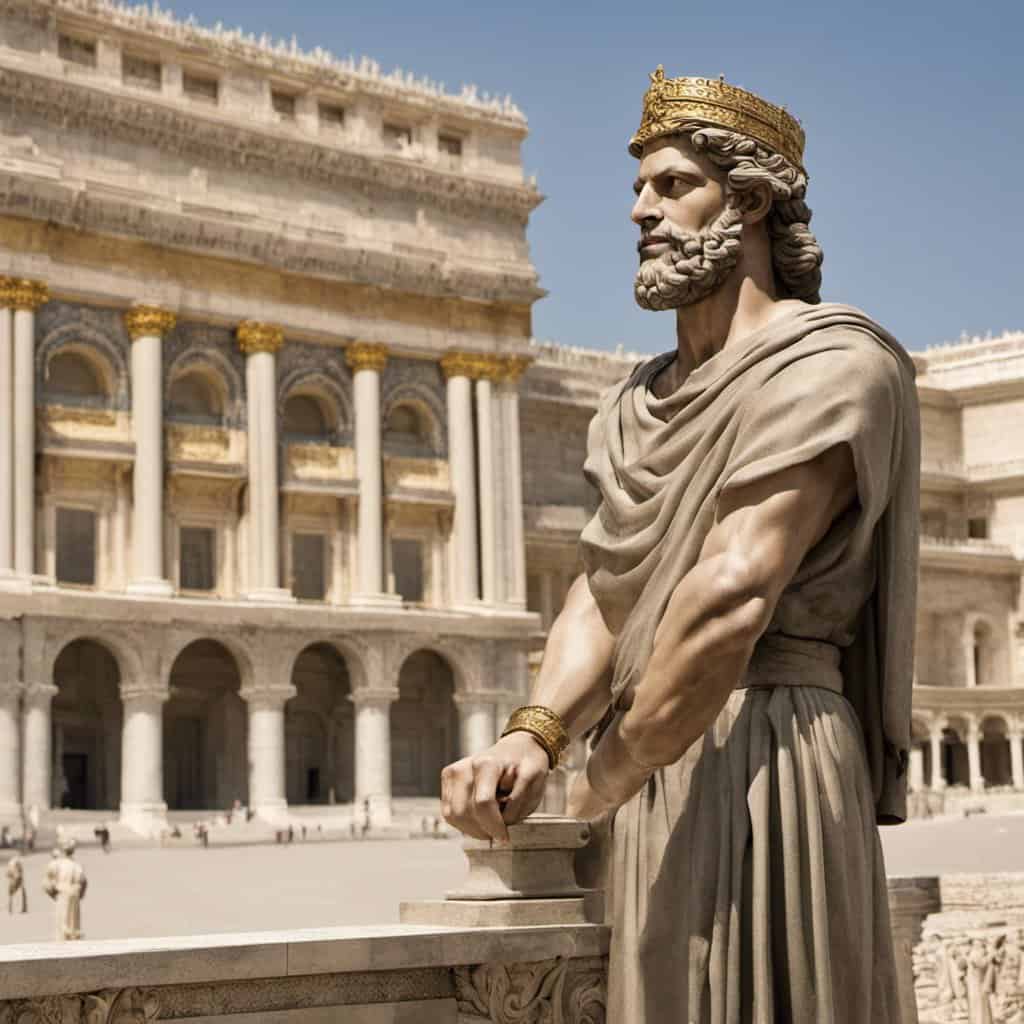
David is one of the most well-known figures in the Bible and one of the wealthiest. As the second king of Israel, he inherited a kingdom that was already prosperous, and he continued to expand it through military conquests and trade.
One of David’s most famous acts of wealth was his construction of the Temple in Jerusalem. This magnificent structure was built with the finest materials and craftsmanship, and it was adorned with gold and precious stones.
David also amassed an extensive collection of treasures, including gold and silver, which he dedicated to the Lord.
David’s wealth was not just material, however. He was also known for his wisdom and ability to govern Israel’s people with justice and fairness. This earned him the respect and admiration of his subjects and helped solidify his position as one of the greatest kings in Israel’s history.
But David was not without his faults. He was known for his many wives and concubines, a common practice among wealthy men in ancient times. This led to problems within his family and kingdom, ultimately contributing to his downfall.
Solomon: The Richest King
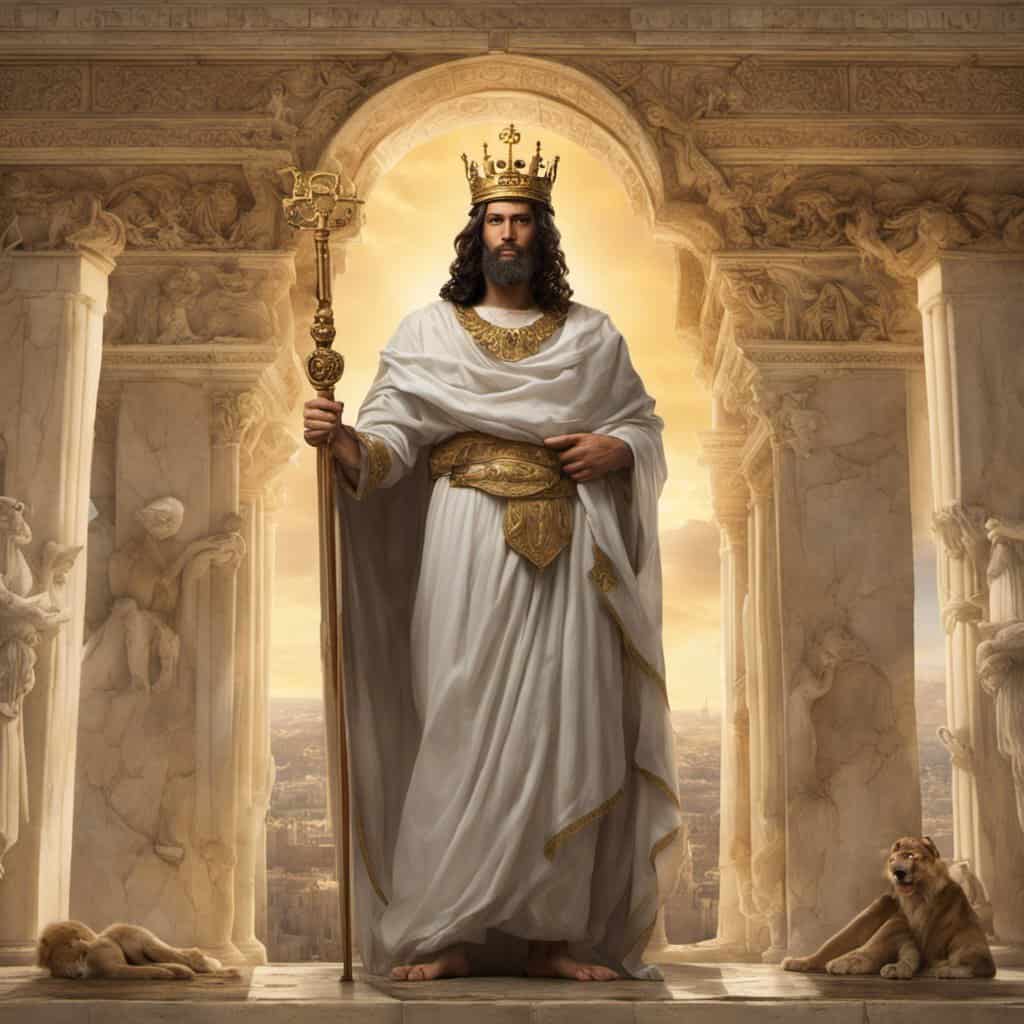
Solomon was the son of King David and Bathsheba, and he became king of Israel after his father’s death. He is known as one of the wealthiest kings in history, and his riches are well-documented in the Bible.
According to the Bible, Solomon’s wealth came from several sources. He was a shrewd businessman and trader, building a fleet of ships that sailed to distant lands to trade goods. He also received gifts from other kings and rulers and imposed heavy taxes on his people.
Solomon’s wealth was so great that he built a magnificent temple in Jerusalem, considered one of the wonders of the ancient world. He also made a palace for himself that was more impressive than any other palace in the world.
In addition to his wealth, Solomon was also known for his wisdom. He was said to be the wisest man ever, and his proverbs and sayings are still studied and admired today.
Job: The Man of Great Wealth

Job was a wealthy man who lived in the land of Uz, believed to be modern-day Saudi Arabia.
According to the Bible, Job was a blameless and upright man who feared God and turned away from evil. He was also known for his great wealth and was considered the greatest of all the people of the East.
Job’s wealth was measured in terms of his possessions, which included 7,000 sheep, 3,000 camels, 500 yoke of oxen, and 500 female donkeys. He also had a huge household with many servants. Job’s wealth was so vast that he was considered the wealthiest man in the East.
Despite his great wealth, Job remained humble and faithful to God. He did not let his riches cloud his judgment or lead him astray from his faith. In fact, Job was known for his generosity and kindness towards others.
He often shared his wealth with those in need and was highly respected by everyone who knew him.
However, Job’s faith was tested when he was struck with a series of tragic events that left him without wealth, family, and even health. Despite these hardships, Job remained faithful to God and never lost hope.
Ultimately, God restored Job’s wealth and blessed him with even more than he had before. His story is a testament to the power of faith and the importance of remaining humble in the face of great wealth.
He inspires those who seek to live a life of integrity and faithfulness, regardless of their circumstances.
Joseph of Arimathea: The Rich Disciple
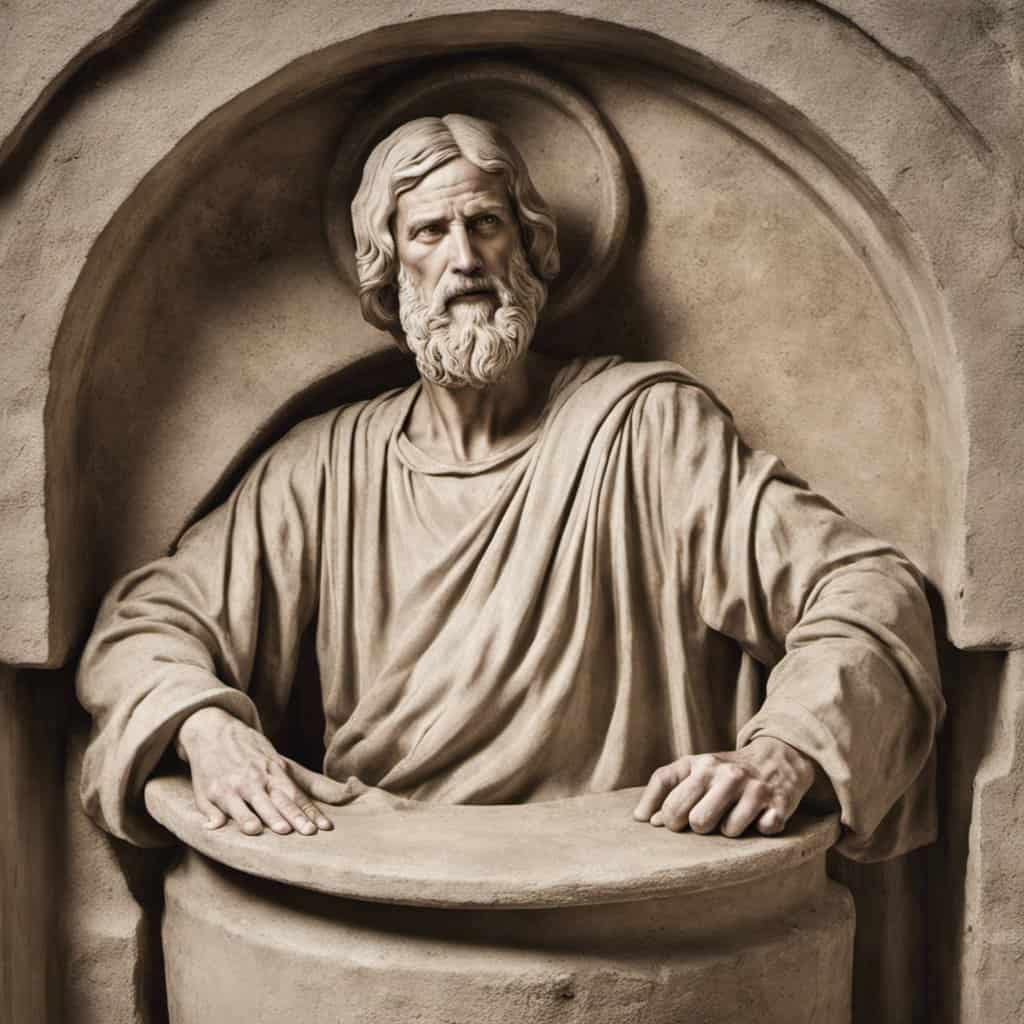
Joseph of Arimathea is a well-known Bible figure known for being a wealthy disciple of Jesus Christ. He is mentioned in all four of the Gospels, which is a testament to his significance in the life of Jesus.
According to the Gospels, Joseph was a member of the Sanhedrin, the Jewish council that had authority over religious and civil matters. Despite his high position, Joseph was a secret disciple of Jesus Christ. He did not publicly declare his faith until after the crucifixion of Jesus.
Joseph’s wealth is also mentioned in the Gospels. He was a wealthy man who owned a tomb hewn out of rock, which he offered to Jesus for his burial. This act of kindness and generosity reflects Joseph’s character, as he used his wealth to serve others.
Joseph’s role in the burial of Jesus is significant, as it fulfilled the prophecy of Isaiah that the Messiah would be buried in a rich man’s tomb. This event also shows that even the wealthy can be followers of Jesus Christ and use their resources for good.
Joseph of Arimathea is a reminder that wealth and status do not determine a person’s worth in the eyes of God. His generosity and faithfulness to Jesus Christ serve as an example for all believers, regardless of their financial status.
Zacchaeus: The Wealthy Tax Collector
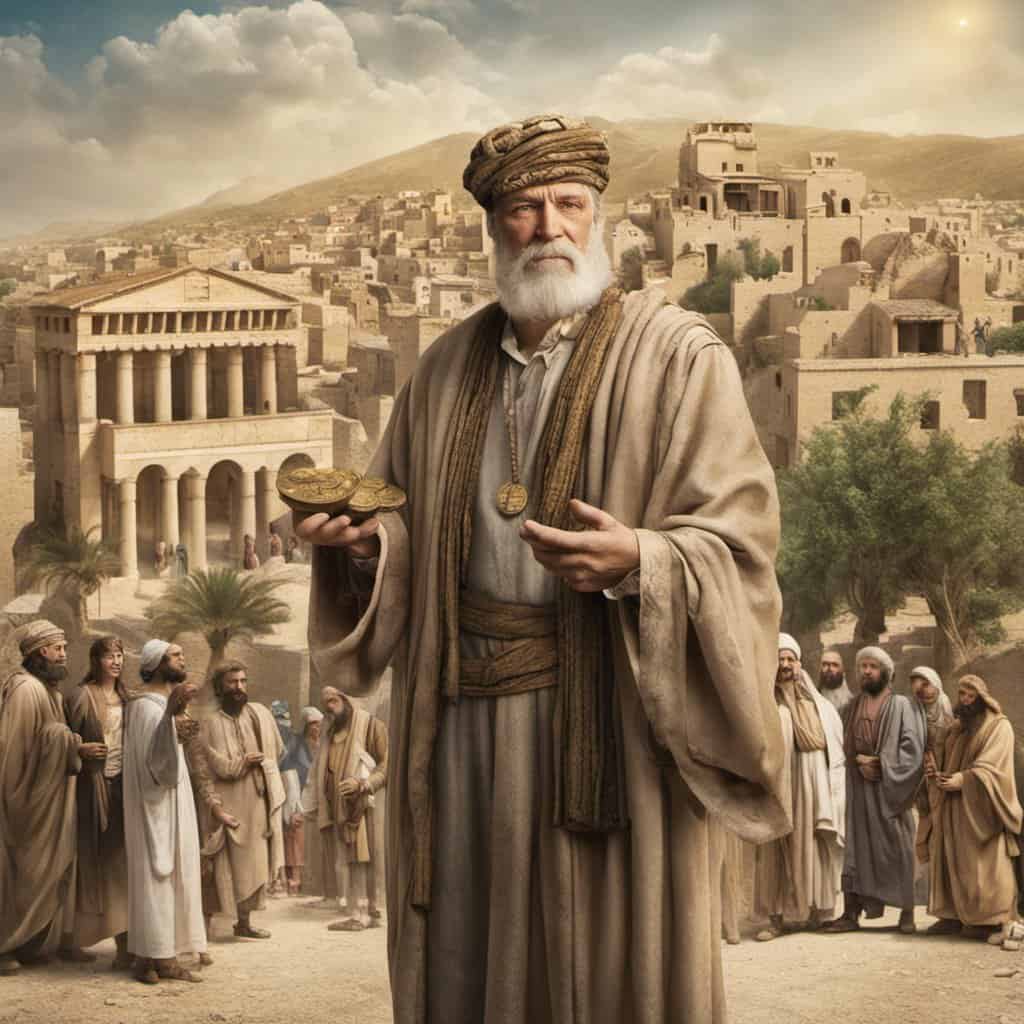
Zacchaeus was a wealthy tax collector in the region of Jericho, as mentioned in Luke 19:1-10. Tax collectors in those times were considered traitors of their people, as they worked for the Roman Empire and often exploited the taxpayers. However, Zacchaeus was not only a tax collector but also a chief tax collector, meaning he was in charge of other tax collectors in the area.
Despite his wealth and status, Zacchaeus was not content with his life. He heard about Jesus and wanted to see him, but being short, he couldn’t see over the crowd. So, he climbed a sycamore-fig tree to get a better view.
When Jesus saw Zacchaeus in the tree, he called out and said he would stay at his house that day. This encounter changed Zacchaeus’ life forever. He was so moved by Jesus’ kindness that he promised to give half of his possessions to the poor and to repay anyone he had cheated four times the amount he had taken from them.
This story teaches us that wealth and status do not necessarily bring happiness and that true happiness can only be found by doing good deeds and helping others. His transformation shows us that it’s never too late to change and that even the most unlikely people can become good and generous if they have the right motivation.
The Rich Young Ruler

The story of the Rich Young Ruler can be found in all three synoptic Gospels: Matthew, Mark, and Luke.
He was a wealthy man who approached Jesus and asked what he must do to inherit eternal life. Jesus told him to keep the commandments, and the young ruler replied that he had kept them all from his youth.
Jesus then told him to sell all his possessions, give to the poor, and follow him. The young ruler went away sad because he had great wealth. This story teaches us that while the wealthy can enter the Kingdom of God, it is difficult to do so.
The Rich Young Ruler is an example of someone who put his trust in his wealth rather than in God. He was unwilling to give up his possessions and follow Jesus. This is a common theme throughout the Bible, where the love of money is a root of all kinds of evil.
The story of the Rich Young Ruler reminds us that our priorities should be in order. We should not put our trust in wealth or possessions but God alone. Jesus said,
“No one can serve two masters. Either you will hate the one and love the other, or you will be devoted to the one and despise the other. You cannot serve both God and money.” — Matthew 6:24
The Rich Fool

In Luke 12:13-21, Jesus tells the parable of the Rich Fool. The story goes that a wealthy man had a great harvest and was unsure where to store his abundant crops. He decided to tear down his barns and build bigger ones to store all his grain and goods. He thought to himself,
“You have plenty of grain laid up for many years. Take life easy; eat, drink and be merry.”
However, God said to him,
“You fool! This very night your life will be demanded from you. Then who will get what you have prepared for yourself?”
This parable teaches us about the dangers of greed and the importance of being content with what we have. The Rich Fool hoarded his wealth and did not consider the needs of others. He was focused on his pleasure and comfort rather than using his resources to help those in need.
The lesson from this parable is not that wealth is inherently evil but that it is easy to become consumed by greed and material possessions. It is important to remember that our time on earth is limited, and we cannot take our possessions with us when we die.
Therefore, we should focus on using our resources to help others and positively impact the world around us.
Wealth in Proverbs
Proverbs is a book in the Bible that is filled with wisdom and advice for living a good life. One of the recurring themes in Proverbs is wealth. The book has a lot to say about the acquisition, use, and dangers of wealth.
Proverbs 10:4 says,
“Poor is he who works with a negligent hand, but the hand of the diligent makes rich.”
This verse suggests that wealth can be earned through hard work and diligence. It also implies that laziness and negligence can lead to poverty.
Another verse, Proverbs 13:11, says,
“Wealth gained hastily will dwindle, but whoever gathers little by little will increase it.”
This cautions against seeking wealth through quick and easy means. It suggests that wealth earned slowly and steadily is more likely to last.
Proverbs also warns against the dangers of wealth. Proverbs 11:28 says,
“Whoever trusts in his riches will fall, but the righteous will flourish like a green leaf.”
This suggests that those who rely too heavily on their wealth will likely experience a downfall.
Proverbs presents wealth as something that can be earned through hard work and diligence but warns against the dangers of relying too heavily on one’s wealth.
Wealth in Ecclesiastes
Ecclesiastes is a book in the Old Testament that discusses life’s vanity and fleeting nature. It discusses the futility of chasing worldly pleasures and possessions, including wealth.
In Ecclesiastes 5:8-20, the author discusses the vanity of wealth and honor. The passage warns against the love of money, stating that whoever loves money will never have enough and will never be satisfied with their income.
The author notes that as goods increase, so do those who consume them, and what benefit are they to the owners except to feast their eyes on them?
The passage also speaks about the sleep of a laborer being sweet, whether they eat little or much, while the full stomach of the rich will not let them sleep. The author concludes that this, too, is vanity and a grievous evil.
Lessons From Wealthy People in the Bible
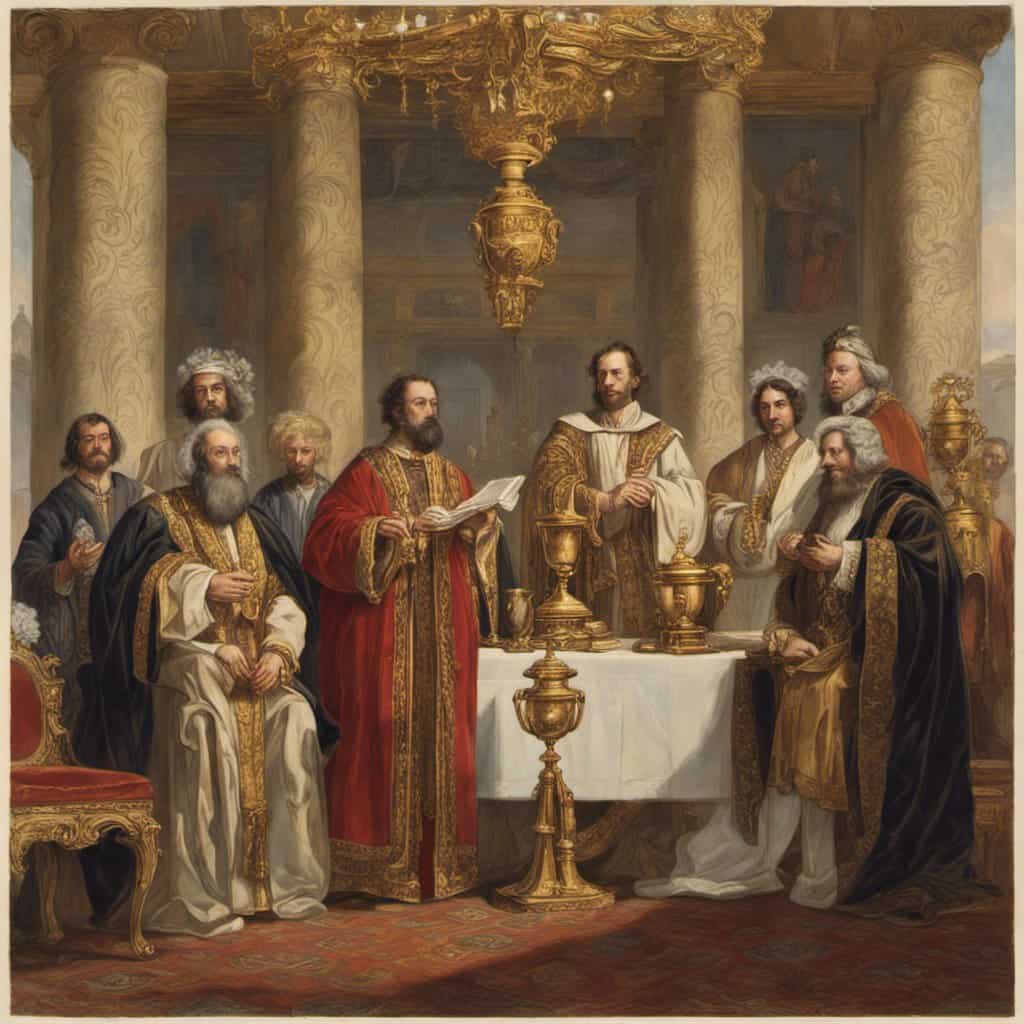
The Bible provides many examples of wealthy people, both good and bad. Here are some lessons that can be learned from their stories:
- Wealth is not evil in itself. Abraham, Jacob, and King Solomon were all wealthy men whom God used in mighty ways. However, wealth can be a dangerous trap that leads people to eternal destruction, as James warns in James 5:1-6. The key is to use wealth wisely and for God’s glory.
- Money can reveal a person’s values. As Jesus says in Matthew 6:21, “For where your treasure is, there your heart will be also.” The way a person uses their money can show what they truly value. Believers are called to be compassionate, merciful, and just to all. Does your checkbook reflect such values?
- Giving generously is a way to honor God. The Bible encourages believers to give generously to those in need and to support the work of the church. As Paul writes in 2 Corinthians 9:7, “Each of you should give what you have decided in your heart to give, not reluctantly or under compulsion, for God loves a cheerful giver.”
- Wealth can be a test of faith. Jesus tells the rich young man in Matthew 19:16-30 to sell all his possessions and give to the poor to follow Him. This tested the young man’s faith and commitment to God. Similarly, believers today may be called to give up their wealth or possessions for the sake of the Gospel.
- Humility is essential for wealthy people. The rich man in Luke 12:13-21 is condemned for his pride and selfishness. Believers blessed with wealth should remember that it is a gift from God and should use it to serve others, not themselves.
The Bible teaches that wealth is a blessing from God that should be used wisely and for His glory. Believers should be generous, humble, and faithful in using money and possessions.
Frequently Asked Questions
Who did God bless with wealth in the Bible?
God blessed several people with wealth in the Bible, including Abraham, Isaac, Jacob, Joseph, Job, David, and Solomon. These individuals were known for their faithfulness to God and their obedience to His commands.
What does God say about the wealthy?
God does not condemn wealth itself but rather the love of money and the pursuit of wealth at the expense of others. In fact, God often blesses His people with wealth due to their faithfulness and obedience to Him.
Was Solomon the richest man in the Bible?
Yes, Solomon was considered the richest man in the Bible. He was known for his great wisdom and wealth, and his kingdom was one of the most prosperous in history.
Who was a billionaire in the Bible?
There is no mention of anyone being a billionaire in the Bible, as the concept of a billion did not exist in ancient times. However, some individuals, such as Abraham, Job, and Solomon, were incredibly wealthy and had vast amounts of resources at their disposal.
Who was the richest man in the Bible history?
Solomon is considered the richest man in the Bible history. He was known for his great wisdom and wealth, and his kingdom was one of the most prosperous in history.
Who is the richest woman in the Bible?
There is no mention of a woman being the richest in the Bible, but several women, such as Abigail, Esther, and the Queen of Sheba, were known for their wealth and influence.
